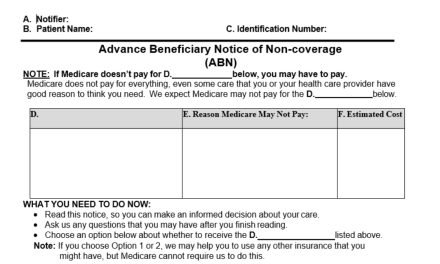
Provider Non-Discrimination Timeline

Provider Non-Discrimination: A Timeline
With provider specific reimbursement limitations by American Specialty Health and Optum’s new per diem reimbursement limits for chiropractic physicians, the ICS is receiving more and more questions about the federal Non-Discrimination law and how it applies. To answer the question, here is a timeline that clarifies what has happened so far and where the ICS’s efforts are focused.
A Little Background
In March of 2010, President Obama signed the bill creating “42 USC § 300gg–5 – Non-discrimination in health care.” This bill says that insurers “…shall not discriminate with respect to participation under the plan or coverage against any health care provider acting within the scope of that provider’s license…” There is only one specific exception allowing plans to use “varying reimbursement rates based on quality or performance measures.” This law applies to plans beginning January 1, 2014. It is the contention of the ICS that many plans are in clear violation of this law. The ICS has worked to arm Illinois doctors (with clear explanations and template letters) as well as other state associations (in meetings and roundtables) with the legal authority to fight these practices, both in Illinois and nationwide – even taking our arguments to the offices of American Specialty Health Network Headquarters in California. These efforts, in combination with our meetings with hospitals, businesses, state and federal agencies, and our multiple lawsuits against insurers, should clearly demonstrate that the ICS is aggressively pursuing this fight.
Does This Apply to Reimbursement Rates?
In April of 2013, the US Department of Labor produced an FAQ[1] improperly interpreting the law by stating it did not apply to reimbursement rates, adding: “This provision also does not govern provider reimbursement rates, which may be subject to quality, performance, or market standards and considerations.” This is VERY different from the narrow exemption in the actual bill. Upon learning of the incorrect interpretation, in July of 2013[2], and again in December of 2014[3], Congress instructed the Department of Labor to correct their FAQ “to reflect the law and congressional intent” since it was “intended to prohibit exactly these types of discrimination.”
On May 26, 2015, the Department of Labor updated its FAQ[4], entirely removing the offending line. Despite this, we are still having a parallel argument with Illinois’ Department of Insurance in response to our assertion that many Illinois insurers are in violation of the law. Even as this article is being published, the ICS is finalizing formal federal and state complaints laying out the legal grounds for our case against these types of discriminatory practices. As always, the ICS will keep its members updated about any major developments in our ongoing battle.
The Timeline
2014
ICS initiated state legislation (HB4774) to codify the non-discrimination effort in Illinois state statute through extensive work with other provider groups in Illinois, including support from the Illinois State Medical Society, Optometric Association, Physical Therapy Association, and the Society for Advanced Practice Nursing. Despite countless meetings and discussions, the bill never passed the committee stage due to intense pressure by the insurance industry. Insurers claimed that the language was under review and likely to be overthrown federally, citing the incorrect 2013 Department of Labor FAQ and intense federal debate.
2015: January through July
The ICS continues to have meetings with all four state legislative staffs, provider groups, and insurance companies. With the election of Governor Rauner, there was a great deal of turnover at the State Departments, and we were forced to restart our non-discrimination discussions with the Department of Insurance from scratch. The ICS again fought to put the non-discrimination language into state law with both HB2769 and SB1333. The insurance companies argued that our efforts were “unnecessary” due to the federal law – which they continued to fight in Washington DC. It was during this last week of the Illinois legislative session that the US Department of Labor formally retracted its erroneous FAQ. To further complicate issues, Illinois was just entering its (still ongoing) budget stalemate. The ICS began calling for meetings with the Illinois Department of Insurance to question the lack of enforcement of the federal non-discrimination provision.
2015: August through December
On August 31, 2015, Optum sent Illinois Chiropractic Physicians notice of the new “Per Diem” fee schedule change for UnitedHealthcare, broadening a problem that Illinois doctors in the St. Louis metro area had been facing for some time ($45 per diem). That same day, ICS General Counsel sent a letter to UHC seeking reversal of the change due to 42 USC § 300gg–5. The following day the ICS sent a formal complaint to the Illinois Department of Insurance (DOI). ICS Staff met with policy staff and attorneys at the Department of Insurance offices to discuss our complaint and general lack of enforcement. DOI requested more time to review our complaints.
2016: January through August
The Illinois Chiropractic Society announces its intention to continue pushing for legislative action. The Illinois Department of Insurance called for another two meetings with ICS, ultimately saying that they did have the authority to enforce the federal law as is, but they needed examples of actual consumer (patient) complaints. ICS provided DCs with tools and equipped them with templates for patient complaints to DOI. The ICS involved legislators in the discussions with DOI and currently believe we are narrowing down the argument to a fine point for which we have federal law and written legislative intent to support our case.
Conclusion
At the time of this writing, the Illinois Chiropractic Society has just sent a formal complaint to the US Department of Labor. We are making the case that although these insurance plans may have appeared to be compliant at the time they were approved, the way they are being implemented (with provider-specific per diems and limitations) is actually in violation of federal law. Furthermore, we are finalizing our argument to Illinois’ DOI in our complaint against Optum and UnitedHealthCare. We feel that our argument is sound and are requesting a written response from DOI. Keep an eye on your email, and we will be sure to keep our membership updated on any major developments.



















